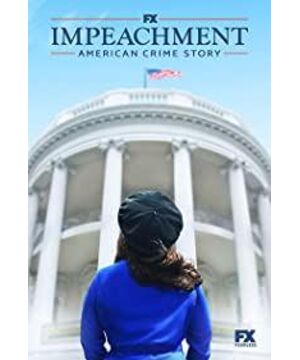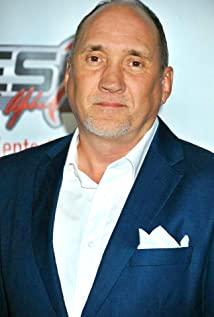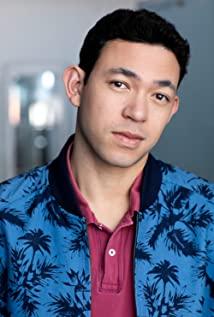There was a black man who murdered his ex-wife and got away with playing the race card.
By the way, I'm talking about OJ Simpson.
The TV series The Simpsons Trials is the first season of American Crime Story. It is based on Jeffrey Toobin's book The Run of His Life: The People v. OJ Simpson. The show was well-received and well-received, not only with high ratings, but also won numerous awards. Received 22 nominations and nine awards at the 68th Emmy Awards, including Best Short Series. It also won a Golden Globe for Best Series or TV Movie.
The second season of American Crime Story is called The Assassination of Gianni Versace. Based on Maureen Orth's Vulgar Favors: Andrew Cunanan, Gianni Versace, and the Largest Failed Manhunt in US History ) The play is still very popular. Nominated for nine at the 70th Emmy Awards, winning three awards, including Best Short Series and Best Actor in a Short Series.
I really enjoyed watching The Simpsons Trials, but it wasn't until I watched The Assassination of Versace that I really understood what was so good about American Crime Story. A director isn't just telling a story, it's rewriting history. Through "The Simpsons Trial", the director analyzed how the concept of "race" entered the space of public discourse, and through "Assassination of Versace", they explored how the concept of homosexuality entered the space of public discourse.
Few people, then or now, doubt that Simpson was the murderer of his ex-wife and her boyfriend. As for the reason for his acquittal, the accepted theory is that his lawyer played the "race card".
However, the "race card" was not a ready-made weapon at the time. It only showed its power since the Simpson case. Since then, some people have played the "race card" to fight for their own interests, while others have accused the other party of relying on the "race card" to obtain improper benefits.
So, are there really discrimination and conflicts of interest based solely on race? Standing in different positions will have completely different perceptions of the same fact, and "Simpson's Trial" is standing at the height of history, depicting the moment when the wind arises at the end of the Green Apple.
Little is known: The resistance to playing the "race card" first came from Simpson himself.
In the TV series, Simpson, who became famous, lived in a noble community and married a white wife, and he has been deliberately bleaching himself.
After the incident, Simpson, who was in panic and despair, drove south by a friend to flee. Simpson is a simple-minded person. At this time, he did not expect to get out of the lawsuit, and he just wanted to escape to Mexico.
What Simpson didn't expect at all was that he was still on the run, and the forces over there had already begun to fight for him. Two people played the biggest role in the Simpson case: Simpson's lead attorney, Robert Shapiro, and Johnny Cochran, a black lawyer and civil rights activist who was later invited to join.
Shapiro is white, and he doesn't believe Simpson is innocent at all. What he values is the huge "money view" of the star client. (Historical fact: Simpson paid more than $10 million in attorney fees for the case). Shapiro took the initiative to contact the TV station and pointed out in an interview that the LAPD locked Simpson as a suspect in such a short period of time because they have always discriminated against blacks.
Cochran probably genuinely believed that Simpson was innocent. In a TV interview, he recounted the examples of the Los Angeles Police Department's abuse of police power to persecute black people over the years, tying Simpson to innocent black people.
The first and second leaders of Simpson's defense team, one is interested in economic interests, the other is aiming to make this trial a milestone in the black civil rights movement.
Under the pressure of public opinion, LAPD did not dare to use force, so they carried out the most troublesome pursuit of Simpson in history: 12 police cars on the ground, 7 helicopters in the sky, and the TV station broadcast the whole process.
From this reality chase show, which can be called a national carnival, some viewers saw a criminal absconding in fear of crime, while some viewers (mostly black people) saw the police persecuting another black person.
As we all know, the highway from Los Angeles to the southern border is often blocked on Friday afternoons. At this time, the highway was closed for Simpson, and a large number of people returning home from get off work were blocked at the highway entrance.
Prosecutors were furious when they saw this scene and shouted at the TV: "Is there no law enforcement standard?" According to the LAPD law enforcement standard, after ordinary people refuse the police's request to stop, the police can shoot. Even if he didn't blow his head, he could blow his tire. But under the live TV broadcast, lawyer protests, and Simpson's star power, no police officer dared to shoot Simpson.
Simpson has always been a controversial figure among black brothers. Many people accuse him of never giving back to the community and "turning white as soon as he has money". As the chase continued, however, everyone realized with joy: "Now he's black again." His supporters flocked to the highway, cheering him from the overpass. Simpson on the run was shocked to moved, and the desire to survive gradually prevailed. He began to realize: Maybe this lawsuit has something to fight.
The TV series "The Simpsons Trial" clearly shows how this "race card" is formed under the joint efforts of many parties: the long-simmering anger in the hearts of ordinary people, the accidental fall of a star of the nation, white lawyers seeing money, society Activists capitalized on the situation, and the media fueled the fire based on ratings. There's an interesting detail in the show: Before the jury heads to visit Simpson's home, Cochran takes down Simpson's low-brow decorative paintings on the wall and replaces them with African art that he has meticulously collected over the years. Simpson, who was handcuffed, was secretly surprised when he stepped into his house; while the black people in the jury took a look at the African cultural heritage that was religiously enshrined in every corner, and then glanced at the good brother who was escorted by the police. pregnancy.
As a courtroom drama, the climax is naturally the cross-examination of witnesses. The key witness in the case, Police Foreman, has been exposed to racist words and deeds. When defense attorneys asked him whether he had manipulated the evidence, he cites the Fifth Amendment by refusing to answer, directly undermining the credibility of a batch of physical evidence. But even if suspicious physical evidence is excluded, there is still a large amount of evidence that is credible. Coupled with Simpson's attempted escape, some jurors still find it difficult to believe that Simpson is innocent. During the deadlocked debate behind closed doors, one juror asked the question: "Even if he is guilty, has the prosecution proved him perfectly?" In this way, the question of whether Simpson was guilty was replaced by whether the prosecution The question of competence. The last few undecided jurors had nothing to say, and the jury unanimously reached a verdict of not guilty.
The racial card played a crucial role in Simpson's acquittal. Yet today, if you ask yourself: How many people truly believe that he is innocent?
"The Simpsons Trial" describes the reality that in the face of the same scene, both parties to the dispute only see what they want to see, and ignore the part they don't want to see. The cognitive differences that began in this century's trial have gone further and further in the following two decades, causing a tear that cannot be bridged in American society today.
How to make up for this tear? If I had my say, I'd say: it's time to get back on the track of law and order. It's just that saying this now runs the risk of being accused of being "racist," because law and order has been stigmatized as veiled racism.
The Simpson Trial raises a profound question: Is there discrimination against "race" alone?
In fact, everyone in life has multiple identities, such as Simpson, who is both a black man, a well-known sportsman with high salary, and a suspect in the murder of his wife. But if you only see him as black, you can easily see the allegations against him as "racist."
The so-called "race card" is to use a person's racial identity to mask a person's other identities. This way of knowing is naive and wrong. Unfortunately, under the banner of political correctness, playing the race card has become an unquestionable way of thinking. Outraged crowds are especially prone to seeing racism in cases involving black people.
Can we put away the word "discrimination" and let the facts speak and the law to judge?
"Assassination of Versace" also has a discussion on identity. Versace was gay, and so was his killer. There is a montage in the movie where Versace decides to come out. Meanwhile, a TV station is investigating the issue of gay discrimination in the U.S. military. Versace made a high-profile announcement in his splendid mansion, while the American soldier who would be fired for telling the truth secretly gave an interview to reporters in a cheap motel. The lights were dim and he dared not show his face. They are all gay, some people are living a life of money, and some people are like street rats. How much in common do they have?
Dershowitz, a well-known defense attorney and professor emeritus of Harvard Law School, played an important role in the Simpson case. Because of time constraints, Dershowitz was not able to show up in court day in and day out, sitting next to Simpson, like Shapiro. But he used the remote method to point the way to the defense of the case, especially his proposed breakthrough in the investigation of racist words and deeds by the police. A few years later, Dershowitz wrote a book called Reasonable Doubt. In his book, he argues that convicting Simpson does not meet the standard of guilt beyond a reasonable doubt, in other words, the premise of Simpson's acquittal is that there is a reasonable doubt by the jury.
After the Simpson case, the next case that can be called a fantasy trial is probably the trial of the police officer Chauvin in the Freud case. On May 25, 2020, in Minnesota, the United States, 46-year-old African American Floyd was arrested on suspicion of using counterfeit money, and former Minneapolis police officer Derek Chauvin knelt on one knee With Floyd on his neck for more than 8 minutes, Floyd lost consciousness while being knelt and was pronounced dead in the emergency room. Chauvin was found guilty of all charges in the case: second-degree murder, third-degree murder and second-degree manslaughter.
In response to the case, Dershowitz said the verdict should be overturned on appeal because the jury was publicly intimidated and the judge refused to segregate the jury.
If the writers and directors of American Crime Story had the guts, they should consider filming the Floyd case.
View more about American Crime Story reviews











